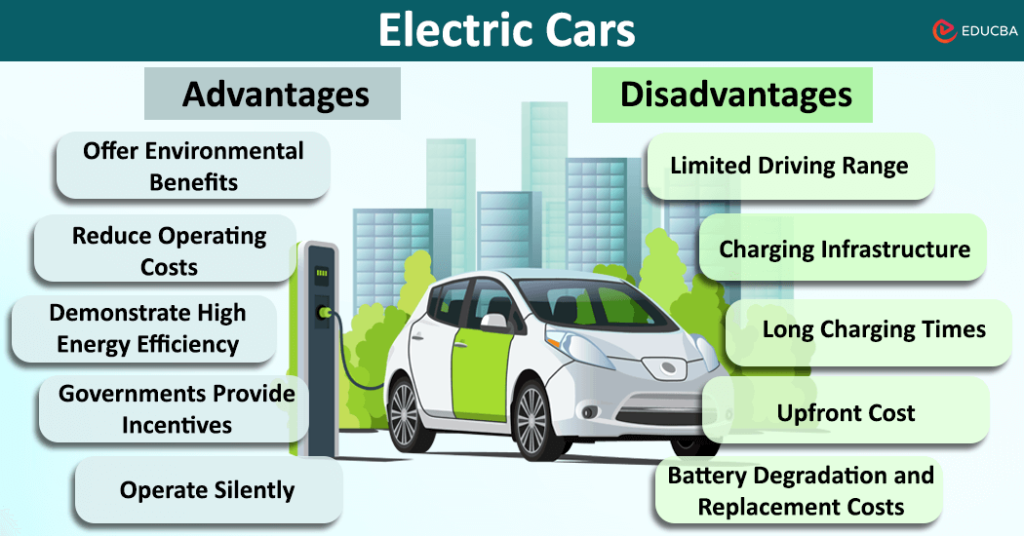Electric cars have rapidly gained prominence in recent years, and for good reason. The benefits of electric cars are manifold, touching on environmental, economic, and performance aspects. At the forefront, the most compelling advantage is their significant reduction in greenhouse gas emissions. Unlike traditional gasoline vehicles that emit carbon dioxide and other pollutants, electric cars produce zero tailpipe emissions. This shift not only helps combat climate change but also improves air quality, contributing to better public health by reducing respiratory issues linked to air pollution.

Another critical benefit of electric cars is their lower operating costs. Electricity is generally cheaper than gasoline, which translates to reduced expenses for fueling electric vehicles (EVs). Moreover, electric cars are often more efficient than their gasoline counterparts. They convert a higher percentage of electrical energy into vehicle movement, making them cost-effective in terms of energy use. This efficiency extends to maintenance costs as well; electric cars have fewer moving parts and require less frequent maintenance compared to internal combustion engines. There’s no need for oil changes, and brake systems tend to last longer due to regenerative braking, which recovers energy during braking and extends brake life.
The benefits of electric cars also include a quieter and smoother driving experience. The electric motor in an EV operates more quietly than a gasoline engine, reducing noise pollution and providing a more serene ride. Additionally, electric cars often deliver instant torque, leading to quicker acceleration and a more responsive driving experience. This combination of quiet operation and smooth performance enhances the overall driving pleasure, making electric cars appealing to a wide range of drivers.
Government incentives are another significant advantage for electric car owners. Many countries offer various forms of support, including tax credits, rebates, and grants to encourage the adoption of electric vehicles. These incentives can substantially lower the initial purchase price of an electric car, making them more accessible to a broader audience. Additionally, some regions provide perks such as carpool lane access, reduced tolls, and free or discounted parking, further adding to the benefits of electric cars.
Infrastructure development is also evolving to support the rise of electric vehicles. The expansion of charging networks is a crucial factor in making electric cars more practical for everyday use. Fast-charging stations are becoming more common, allowing for quicker recharges and reducing range anxiety—the fear of running out of battery before reaching a charging point. Many new homes and commercial buildings are also being equipped with electric car charging stations, further integrating EVs into daily life.
The environmental benefits of electric cars are not limited to reduced emissions. They also contribute to the sustainability of energy resources. As the grid becomes greener with increased use of renewable energy sources like solar and wind power, the overall carbon footprint of electric cars continues to shrink. This synergy between renewable energy and electric vehicles creates a positive feedback loop, advancing the shift toward a more sustainable energy future.
Innovation in battery technology is continuously improving the performance and range of electric cars. Advances in battery efficiency and energy density are addressing previous limitations, allowing for longer driving ranges and shorter charging times. As these technologies evolve, the benefits of electric cars will become even more pronounced, making them an increasingly viable option for more drivers.
In conclusion, the benefits of electric cars are extensive and multifaceted. They offer significant environmental advantages by reducing emissions and improving air quality, contribute to lower operating and maintenance costs, and provide a superior driving experience with quiet operation and instant torque. Government incentives and expanding infrastructure make electric cars more accessible and practical, while ongoing advancements in battery technology promise to enhance their performance further. Embracing electric vehicles represents a crucial step toward a more sustainable and economically efficient future, aligning with global efforts to combat climate change and promote cleaner, greener transportation solutions.


















Wonderful website you have here but I was wanting to know if you knew of any discussion boards that cover the same topics discussed in this article? I’d really like to be a part of group where I can get suggestions from other experienced individuals that share the same interest. If you have any recommendations, please let me know. Thanks!
Thank you for your sharing. I am worried that I lack creative ideas. It is your article that makes me full of hope. Thank you. But, I have a question, can you help me?